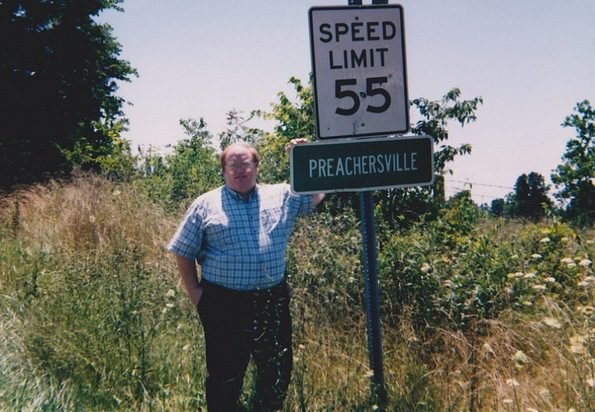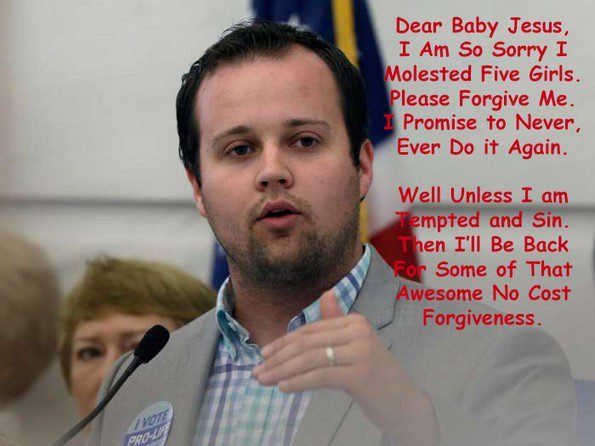
Andy Savage, Mark Driscoll, and Ted Haggard are all Evangelical pastors who have checkered pasts. Twenty years ago, Andy Savage sexually assaulted a church teenager. While pastor of Highpoint Church in Memphis, Tennessee, Savage admitted his crime. Unfortunately, he was never punished due to the statute of limitations expiring. Savage later left Highpoint. (Please see Black Collar Crime: Evangelical Pastor Andy Savage Gets Standing Ovation for Admitting He Sexually Assaulted a Teenager and Black Collar Crime: Dominoes Continue to Fall Over Andy Savage Scandal.) Mark Driscoll was the pastor of Mars Hill Church in Seattle, Washington. Accused of having an autocratic management style, verbally/emotionally abusing congregants, plagiarism, and “squishy book-promotion ethics,” Driscoll resigned. Three months later, Mars Hill closed its doors. Ted Haggard was the president of the National Association of Evangelicals (NAE) and the pastor of New Life Church in Colorado Springs, Colorado. Haggard, a closeted bisexual, used crystal meth, cavorted with a male prostitute, and had an inappropriate sexual relationship with a male congregant. In late 2006, Haggard was fired from New Life and resigned his position with the NAE.
All of these men were married, had children, and pastored multi-million-dollar churches running thousands in attendance. All of these men were Evangelical in doctrine and well respected by congregants and colleagues alike. All of these men traveled the Evangelical conference circuit, speaking to thousands of people. These men were widely considered to be preachers God was mightily using to advance his kingdom. Yet, Savage, Driscoll, and Haggard fell from their lofty perches and were drummed out of their churches.
End of story? Surely you jest! Evangelicals are quite forgiving and love a good comeback story. In 2010, Ted Haggard started a new church, St. James Church, in Colorado Springs, Colorado. In 2016, Driscoll birthed a new congregation, The Trinity Church, in Scottsdale, Arizona. And Savage? He is ramping up a new church plant, Grace Valley Church in Eads, Tennessee.
“Bruce, how can these guys do what they did and still be pastors?” Simple. Savage, Driscoll, and Haggard are independent contractors, free to do what they want, including starting new churches. There are no federal or state laws that forbid these men from setting up new non-profit churches (businesses). (Please see How to Start an Independent Baptist Church.) Anyone, including you, can gather a handful of people together and start a church. It’s really that easy. In 2015, comedian John Oliver proved just how easy it is to start a new church, by setting up a non-profit religious organization called Our Lady of Perpetual Exemption. Oliver later closed the church and donated the “offerings” to “Doctors Without Borders.”
Why didn’t Savage, Driscoll, and Haggard admit that they were no longer Biblically qualified to be pastors? 1 Timothy 3 gives the qualifications for pastors, and none of these “men of God” met the Biblical standard. Truth be told, I don’t know of any man who meets the qualifications. The Bible says:
This is a true saying, if a man desire the office of a bishop, he desireth a good work. A bishop then must be blameless, the husband of one wife, vigilant, sober, of good behaviour, given to hospitality, apt to teach; Not given to wine, no striker, not greedy of filthy lucre; but patient, not a brawler, not covetous; One that ruleth well his own house, having his children in subjection with all gravity; (For if a man know not how to rule his own house, how shall he take care of the church of God?) Not a novice, lest being lifted up with pride he fall into the condemnation of the devil. Moreover he must have a good report of them which are without; lest he fall into reproach and the snare of the devil.
And let’s not forget about Galatians 5:19-21:
Now the works of the flesh are manifest, which are these; Adultery, fornication, uncleanness, lasciviousness, Idolatry, witchcraft, hatred, variance, emulations, wrath, strife, seditions, heresies, Envyings, murders, drunkenness, revellings, and such like: of the which I tell you before, as I have also told you in time past, that they which do such things shall not inherit the kingdom of God.
And finally, pastors should be expected to demonstrate the fruit of the Spirit, yes? Galatians 5:22,23 says:
But the fruit of the Spirit is love, joy, peace, longsuffering, gentleness, goodness, faith, Meekness, temperance: against such there is no law.
Taking these three passages of Scripture together, it’s clear that Savage, Driscoll, and Haggard have no business being pastors. In fact, no man is qualified to be a pastor. What about you, Bruce? Were you qualified? Absolutely not. At best, I was a “two out of three ain’t bad” kind of preacher. I really, really, really wanted to be a pastor, so just like every other man to ever pastor a church, I rationalized my shortcomings, telling myself that I would work hard to become a better man and preacher. All in all, I was a feeble, frail, fallible man who hopefully did more good than harm.
In the fall of 1995, I left the pastorate of Olive Branch Christian Union Church in Fayette, Ohio. I was at Olive Branch for seven months. A quick overview of my ministerial career reveals that I either stayed at churches for a long time or left after a few months — seven months to be exact. That’s right. I left three of the churches I pastored after being there for only seven months — started in the spring, left in the fall. I am sure there is some Freudian shit in there somewhere to unpack.
After leaving Olive Branch, I moved five miles down the road and started Our Father’s House in West Unity, Ohio. I pastored this church for seven years. One day, I received a letter from a ministerial colleague of mine. He and I met when I was pastoring Somerset Baptist Church in Mt. Perry, Ohio. Dick, at the time, was the pastor of an IFB church in nearby New Lexington. The previous pastor had left due to allegations of misconduct. This was Dick’s first and only church. The church had a lot of internal problems. I thought of Dick — a kind, decent man — as a sacrificial lamb. His congregation ripped him to shreds. After a year or so, Dick resigned and returned home to southwest Ohio, never to pastor again.
Dick’s letter was quite pointed. Due to my recent moves from church to church to church, Dick questioned my emotional stability and suggested I reconsider starting a new church. I remember how offended I was by his words. I thought, “Didn’t he know I was a divinely called man of God? Didn’t he know I was just following God’s will?” I never spoke to Dick again, but years later after a size sixty bit of hindsight, I concluded that he was absolutely right. I should have hit the pause button and reevaluated my life. It would be another decade before I stopped thinking that being a pastor was the sum of my life; that not pastoring a church was a betrayal of Jesus and all I held dear. It took me years after that to regain any sense of self. Jesus and the ministry had swallowed up Bruce Gerencser. I lost any sense of personal identity and self-worth. To this day, I see a secular counselor on a regular basis. Therapy is essential to me recovering any sense of mental wellness.
The title of this post is “What Andy Savage, Mark Driscoll, and Ted Haggard Have in Common.” Let me add my name to theirs, and the names of every Evangelical preacher. I am going to admit something here that most preachers will NEVER admit: preachers love the adulation they receive from congregants. They love being the center of attention. They love being the hub around which everything turns. And it is for these reasons fallen, disgraced preachers have a hard time quitting the ministry. Think of all the preachers you know who were drummed out of the ministry, only to start a new church or assume the pastorate of an established church months or years later. I could spend weeks detailing the stories of such men.
“Bruce, why can’t these men quit the ministry?” They are addicts. Standing before fawning congregants on Sundays and being thought of as THE MAN is like crack cocaine. Once you feel the rush, you want more, regardless of what you have to do to get the drug. Preachers need the thrill they feel when doing the work of the ministry. I am not suggesting that all pastors are bad men — they are not. But preachers need to be honest about the emotional and psychological “bump” they get from preaching and ministering to others. It is okay to admit this, preachers. You are human.
I started blogging in 2007. Come December, this current iteration of my blog will celebrate its fifth anniversary. In many ways, this blog is my “church.” Thousands of people read my writing. I reach far more people now than I ever did as a pastor. When my work is well-received, it pleases me and spurs me on to continue writing. My counselor tells me that I am still a preacher; that I have just changed teams. Perhaps. I will leave it to others to make such judgments. I do know that I find writing emotionally gratifying. Whether one hundred people are reading it or five thousand, I am driven to continue to tell my story. That some people find my writing helpful is all the more reason to keep on preaching the humanist gospel.
That said, there are differences between the twenty-five years I spent in the ministry and being a writer. The Evangelical churches I pastored were captive audiences. I was an authority figure, someone given the power to guide, direct, and correct their lives. Today, I pastor a “church” of thousands, yet I have no authority over anyone. Readers are free to come and go; love me or hate me; praise me or ridicule me. Church members were required to tithe and give offerings. Readers are under no such compulsion. They are free to donate, or not. Either way, the “church” remains open for “whosoever will.”
I hope my honesty has not caused you to think any less of me. I know this post will give my critics more ammunition. There’s nothing I can do about that. It is far more important for me to give an open, honest, pointed accounting of my life. I trust you found my words insightful and helpful.
About Bruce Gerencser
Bruce Gerencser, 62, lives in rural Northwest Ohio with his wife of 41 years. He and his wife have six grown children and twelve grandchildren. Bruce pastored Evangelical churches for twenty-five years in Ohio, Texas, and Michigan. Bruce left the ministry in 2005, and in 2008 he left Christianity. Bruce is now a humanist and an atheist. For more information about Bruce, please read the About page.
Are you on Social Media? Follow Bruce on Facebook and Twitter.
Thank you for reading this post. Please share your thoughts in the comment section. If you are a first-time commenter, please read the commenting policy before wowing readers with your words. All first-time comments are moderated. If you would like to contact Bruce directly, please use the contact form to do so.
Donations are always appreciated. Donations on a monthly basis can be made through Patreon. One-time donations can be made through PayPal.


